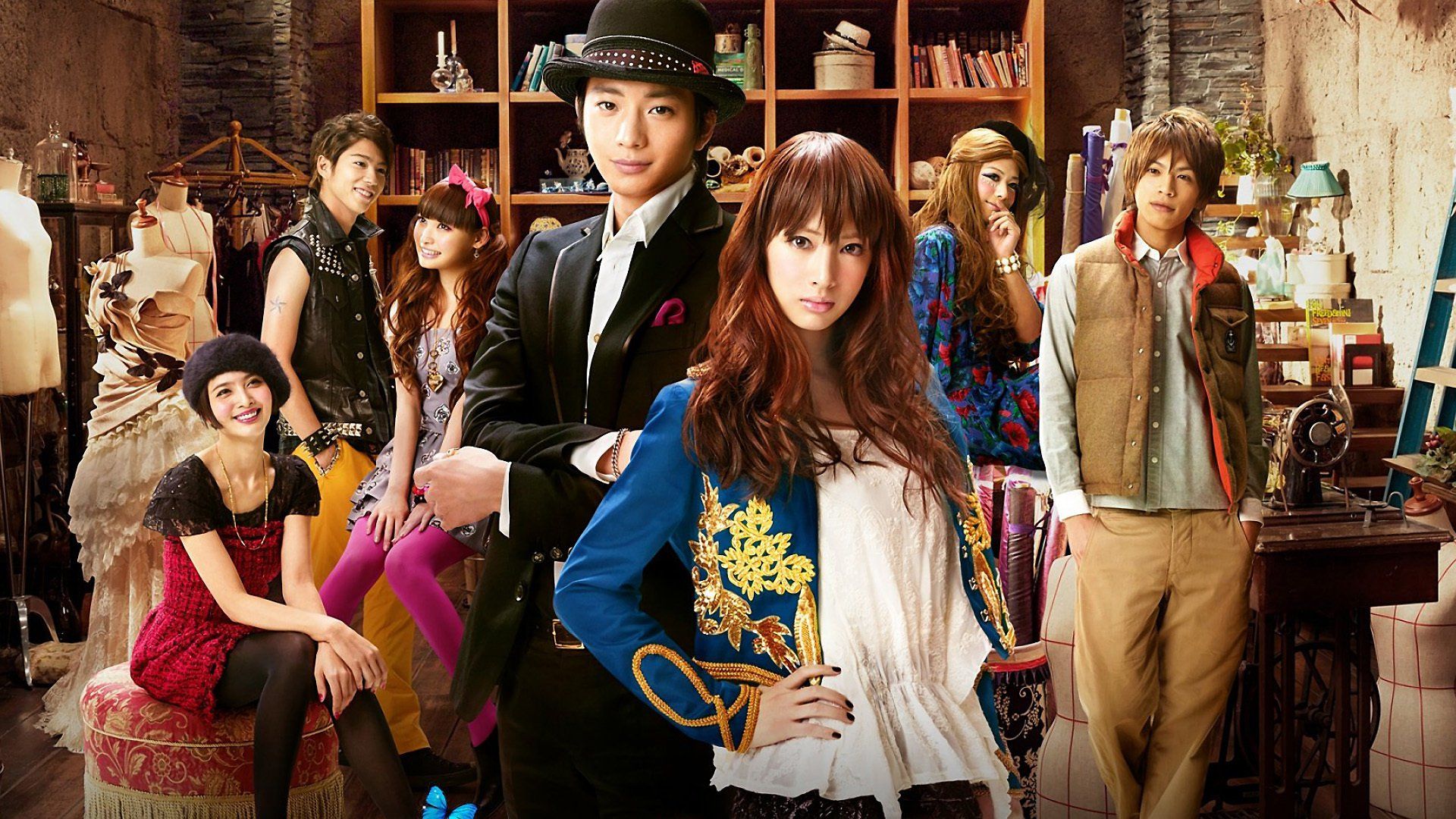Ai Yazawa’s Paradise Kiss is more than 850 pages and the most surprising part is how little time passes. From the beginning to the end (minus an epilogue), it really only takes place over about a month. Paradise Kiss packs in so much, it still feels like an intense epic.

Yukari is an average high school student who’s been pushed toward success by her overbearing (and sometimes abusive) mother. After a chance encounter, she falls in with a group of fashion students preparing for their end-of-the-year show. They’re led by designer, George, who is mercurial and demanding but also incredibly loving and loyal to his friends. Yukari, nicknamed Caroline (or Carrie) by the group, becomes their model and George’s muse.
It’s somewhat of an Ugly Duckling/Cinderalla story — Yazawa is clearly playing with some fairy tale tropes here — but also about a young woman deciding what she wants from her life. Yukari’s mother has always made all of her decisions for her, and Yukari is overdue for both a rebellion and a sexual awakening.
Yukari drops out of school and runs away from home! She starts modeling! It all seems like it comes a bit easy for her — this is a lot of glamour and fantasy — but it’s not without struggle, emotional and otherwise.
The supporting characters are a colorful mix. Miwako’s childlike demeanor and habit of referring to herself in the third person hides heartbreak and sorrow that makes her want to please everyone. Arashi’s love of punk helps to conceal his insecurities. Hiroyuki throws himself into his studying because he feels like he has nothing else. Perhaps the most stable of the bunch, refreshingly, is Isabella, a transwoman who is motherly and supportive of everyone around her.
The comic is careful at pointing out that George and Yukari may feel pulled toward each other (especially physically) but they’re not really compatible enough for anything long-term. This isn’t meant to be a love story for the ages — this is just two people who feel drawn together and want that flame to burn brightly. Despite the characters’ ages (they’re all late teens or early 20s), this is a surprisingly mature perspective and I loved that.
As a comic about fashion students, of course clothes are going to play a huge role and the characters lacking style could really break this comic. Luckily, Yazawa did study fashion design before becoming a manga artist and her talent there shines. Mostly, these aren’t outfits people would wear in real life, but Yazawa’s love of fashion creates such a beautiful world.
And then, yes, there’s the dress the entire manga is built around.
Usually, in a lot of cases, the reveal is going to be a letdown, no matter how great it is. It’s been built up for so long that it can’t possibly be as good as anything we’re imagining. However, the final product is absolutely gorgeous and I think I may honestly gasped at the reveal. It was perfect and I loved it.
Paradise Kiss (2011, directed by Takehiko Shinjo) takes the basic premise and story of the manga and ignores all of its nuances. It’s not particularly bad and I understand the choices that were made here, but it was still hard to not feel some disappointment.
The cast, led by Keiko Kitagawa as Yukari and Osamu Mukai as George, serves the material well enough. Kitagawa works well as a girl that can both look plain and glamorous, depending on her styling. Osamu doesn’t have quite the same mystery as the manga’s George, but he brings enough sexy danger to the role.
The fashion is strong, capturing the aesthetic of early ’00s Asian style, but it doesn’t go quite as over the top as the manga, sadly (and it puts a lot of ridiculous hats on George). The final dress is fairly close to the manga but doesn’t have the same sort of amazing reveal once we see it.
The movie fundamentally changes George and Yukari’s relationship. Instead of a fleeting connection, it’s one that’s framed as true love and that just doesn’t work for me. The manga succeeds because they had sense enough to know they were better off apart.
Also, the movie excises the sexual relationship the two of them had, which, honestly, was a big part of why they were together. They share nothing but brief, fairly chaste kisses. In fact, Yukari seems mostly horrified by how promiscuous George is rather than intrigued.
There is also a questionable scene where George makes Yukari think he’s going to rape her. George is sexually aggressive, sure, but this feels completely out of character, even if he wasn’t actually planning on doing it. It makes him feel more like an unstable menace than boyfriend material.
(The movie also entirely ignores George’s bisexuality.)
Miwako (Aya Omasa) and Arashi (Kento Kaku) look like their manga counterparts but aren’t given much to do here. Shunji Igarashi gives Isabella a kindness but her role is mostly just to stand around and be supportive. I get this movie was less than two hours so it was going to be less complex than the comic, but I missed the connection between the core group.
The sequences of Yukari modeling are fairly hilarious. She just automatically knows how to strike poses without any direction for the photographer! (Also, it was George who set up her first modeling job, rather than Miwako’s sister, which felt manipulative on his part.)
I imagine Paradise Kiss is completely serviceable if you’ve never read the manga and once I accepted the movie for what it is, I was relatively entertained even with some minor complaints. However, even a good adaptation is never going to capture the depth and generosity of the manga.

